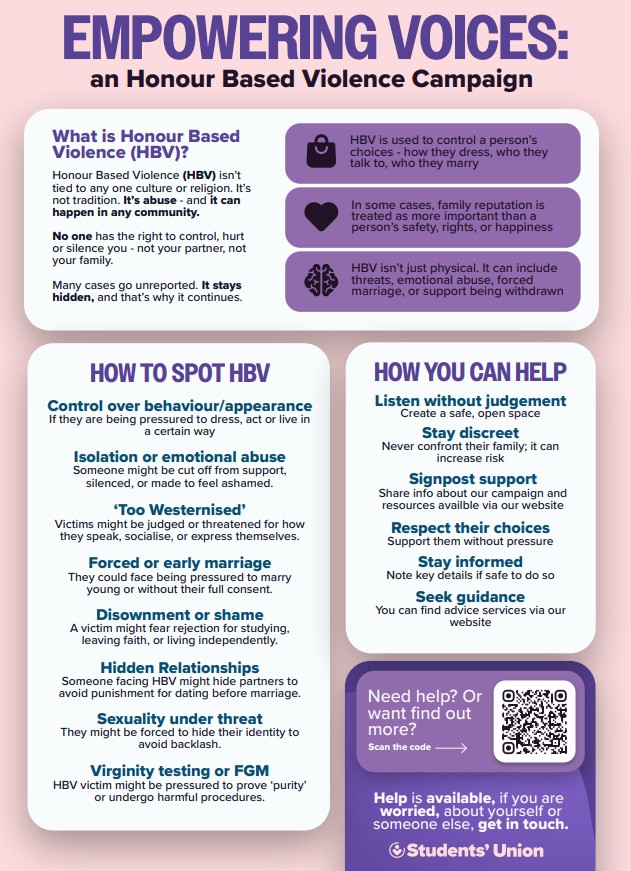So called' Honour-Based Abuse (HBA)

'So Called' Honour-Based Abuse (HBA), including Forced Marriage, is a broad term that refers to a range of harmful practices used to control and suppress individuals, often within families or social groups, in the name of protecting perceived cultural or religious honour. These actions are typically aimed at preserving the reputation or status of the family or community, especially when someone is believed to have violated an ‘honour code.’
While HBA is most commonly associated with women and girls, men and boys can also be victims. Abuse may be escalated by behaviour seen as bringing shame or dishonour, prompting perpetrators to act in an attempt to restore their standing. In many cases, these actions are supported or condoned by other family or community members.
HBA is rooted in traditions where the collective reputation of the family or group is prioritised over individual rights. It is most prevalent in communities with cultural ties to South Asia, the Middle East, Africa, and Gypsy, Roma, and Traveller groups.
Forms of Honour-Based Abuse include:
- Rape and sexual assault
- Physical violence, including acid attacks and burning
- Neglect and cruelty
- Enslavement and modern slavery
- Kidnap and false imprisonment
- Property damage
- Harassment, stalking, and malicious communications
- Threats and verbal abuse
HBA is closely linked to other harmful practices such as Forced Marriage (FM) and Female Genital Mutilation (FGM).
It is important to note that no religion condones violence, coercion, or forced marriage. These acts are cultural, not religious, and must be addressed as serious violations of human rights.
Forced Marriage:
A forced marriage is a recognised form of domestic abuse. It occurs when one or both individuals do not, or cannot consent to the marriage, and pressure, coercion, or abuse is used to ensure the marriage takes place. This abuse can be physical, emotional, psychological, sexual, or financial. In many cases, multiple perpetrators are involved, including family members, community leaders, or others in positions of influence.
Forced marriage is illegal in the UK under the Anti-social Behaviour, Crime and Policing Act 2014. This includes taking someone abroad to force them into marriage, or arranging a marriage for someone who lacks the mental capacity to consent, even if no violence or threats are used
Victims may face:
- Emotional manipulation and threats
- Physical violence or sexual assault
- Isolation, surveillance, or being held against their will
- Loss of autonomy and control over their lives
The abuse often continues after the marriage, with victims at risk of ongoing domestic violence. While most cases involve young women under 30, men and individuals with disabilities are also affected.
None valid justifications
- Preserving family honour or cultural traditions
- Gaining immigration advantages (e.g., British citizenship)
- Controlling behaviour, sexuality, or lifestyle choices
- Fulfilling family agreements or inheritance expectations
It’s important to note that no religion condones forced marriage. All major faiths require free and informed consent for marriage.
Recognising the signs
Forced marriage can have a profound emotional and psychological impact. Warning signs may include:
Emotional distress:
- Anxiety, depression, or suicidal thoughts
- Feelings of guilt, shame, or fear
- Emotional withdrawal or sudden behavioural changes
Behavioural indicators:
- Unexplained absences or poor academic performance
- Visible injuries or signs of self-harm
- Being closely monitored or chaperoned
- Avoiding phone or video calls due to lack of privacy
- Talking about upcoming travel with fear or reluctance
- Going missing
Those facing this pressure need timely emotional and practical support. Creating a safe, non-judgmental space for disclosure is essential.
